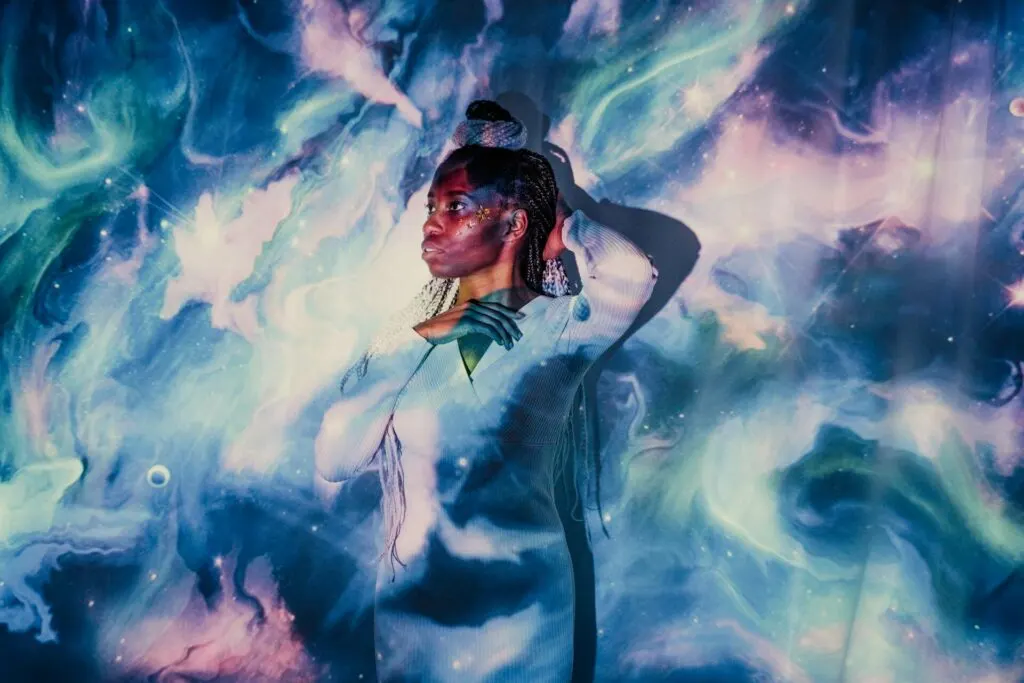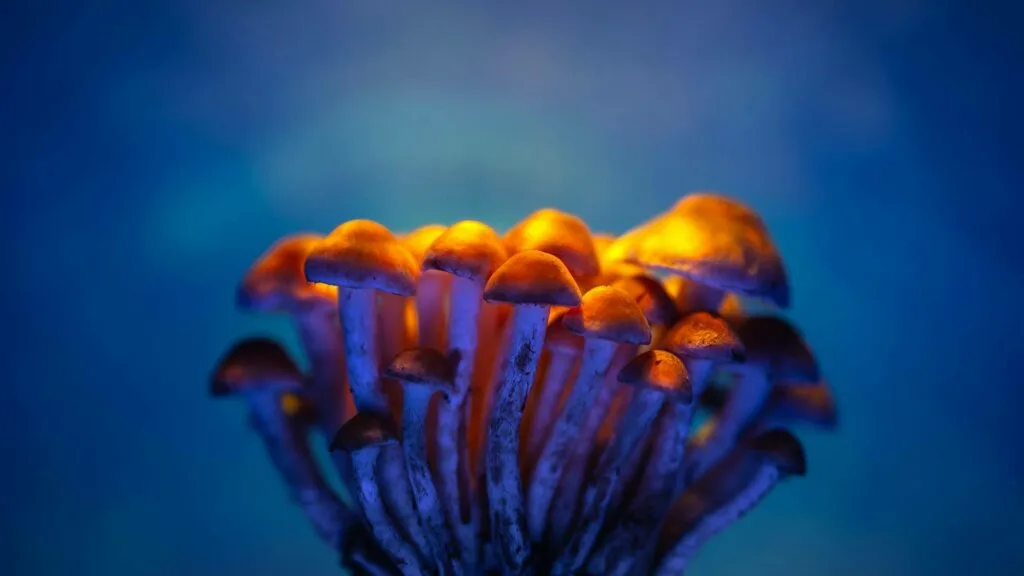Most have heard of the term bipolar, but there’s also a lesser-known counterpart called unipolar disorder. Unipolar Depression or Major Depressive Disorder characterizes a state of mental health marked by a persistent low, sad, or hopeless mood.
The term “unipolar,” derived from “uni” (meaning one) and “polar” (indicating end), implies experiencing symptoms solely from one extreme of the mood spectrum. This stands in stark contrast to bipolar disorder, wherein individuals may shift between low-mood states (depression) and high-mood states (mania or hypomania).
Evidence indicates that psilocybin shows promise as a treatment for unipolar depression. The active compound of shroom, available via a magic mushroom delivery, operates through a unique approach in contrast to conventional medications.

Key Takeaways:
- Psilocybin’s effects can endure for up to a year, with minimal side effects and a low risk of addiction.
- Many patients can tolerate psilocybin, with no instances of notable or unexpected negative effects.
- People with bipolar disorder showed a decrease in manic episodes, and no one attempted or succeeded in suicide.
Unipolar Depression
The primary diagnostic criteria for unipolar depression involve sustaining a low mood for a minimum of 2 weeks. During this time, individuals might experience feelings of sadness, irritability, or a general sense of dissatisfaction with life. These emotions usually continue despite changes in circumstances or positive occurrences.
Other Symptoms
- Anhedonia. A diminished ability to experience pleasure or excitement. This could manifest as a lack of enjoyment in pleasurable activities, even when engaging with loved ones.
- Alterations in Appetite. This can result in either increased hunger or decreased desire to eat. Significant fluctuations in weight, with a change of at least 5% within a month, can also occur.
- Feelings of Persistent Fatigue. Common regardless of sleep quantity. Sleep disorders, such as insomnia or difficulties falling asleep, can throw off regular sleep schedules.
- Psychomotor Changes. This may be evident when individuals feel excessively fidgety, or experience slowed movements.
- Cognitive Issues. Trouble with focus, memory, or decision-making can arise, constantly accompanied by mental fog.
- Recurring Thoughts. Thoughts related to death, dying, or suicide might occur, though individuals may not necessarily have a concrete plan or intention to act on these thoughts.
Bipolar Depression vs. Unipolar Disorder
| Bipolar Depression | Unipolar Disorder |
| Two phases (mania and hypomania)Wake up early in the morning and find it difficult to sleep.Appetite loss and decreased weight gain.Associated with panic disorder, obsessive-compulsive disorder, and social anxiety disorder. | No alternating episodes.Excessive sleepiness, daytime fatigue, and weakness.Increased appetite and weight gain.Not associated with panic disorder, obsessive-compulsive disorder, and social anxiety disorder. |
Using Shrooms to Treat Unipolar Depression
In an exploratory placebo-controlled trial led by a Clinical Instructor from Yale School of Medicine, psilocybin treatment improved depression and anxiety. The antidepressant effects of psilocybin were sustained for an average of 2 months, accompanied by enduring enhancements in various domains related to the quality of life and mood.
Even in a phase 2 trial from the New England Journal of Medicine focusing on individuals experiencing treatment-resistant depression, the administration of psilocybin at a singular dosage of 25 mg exhibited notable reductions in depression scores over a span of three weeks.
What also makes psilocybin more intriguing is its tolerability among all participants, with no significant or unexpected adverse effects noted.
The researchers from Johns Hopkins University found that psilocybin treatment led to significant reductions in depression, with sustained low depression severity observed at one, three, six, and 12 months post-treatment. Psilocybin exhibits significant and immediate effects and demonstrates a prolonged duration. In contrast to traditional antidepressants requiring extended usage, psilocybin shows promise in providing enduring relief from depressive symptoms with just one or two treatments.

How Does This Happen?
It appears that altered consciousness resulting from serotonin receptor activation underlies depression’s effect. Psilocybin functions as a prodrug for psilocin, effectively acting as a partial agonist at serotonin receptors and easily crossing the blood-brain barrier. It produces altered states of consciousness marked by a range of sensations, time distortions, visual and occasionally audio effects, and changes in perception.
Scientists have termed these altered states “neuronal avalanche.” These changes start with psilocin inhibiting the default mode network, which reinforces negative thought patterns. This inhibition fosters personal and cognitive agency restoration and facilitates active coping mechanisms.
The most significant transformation lies in the surge of neural connectivity. Psilocin can reconfigure brain circuitry and dismantle old, rigid networks to form new connections.
Psilocybin and Bipolar Depression
Psilocybin consumption among individuals diagnosed with Bipolar Disorder (BD) is available through case reports. A review examining published case reports identified 17 individuals with detailed descriptions of emergent BD symptoms following psychedelic use.
In a qualitative analysis, participant testimonials highlighted various mental health enhancements.
- Reduced depression severity.
- Improved emotion processing.
- Adoption of new perspectives post-psilocybin ingestion.
- Heightened relaxation leads to better sleep.
They emphasized how their psilocybin encounters facilitated emotional processing and fostered transformative outlooks, which aid in mood improvement. The participants experienced increased calmness and grounding during the described relaxation, occasionally leading to improved sleep quality.
A small, open-label study from JAMA Psychiatry indicates a significant improvement in depression symptoms following psilocybin dosing from baseline to week 3. Mania symptoms decreased, and no individuals made suicide attempts or completed suicide during the research period.
Participants didn’t report any notable adverse events associated with psilocybin dosing. The predominant adverse event observed was a headache on the dosing day, which resolved within 24 hours. Upon completion of the study, 9 patients opted not to resume their antidepressants or mood-stabilizing medications.
Psilocybin’s effects on bipolar disorder are complex, which warrants caution when considering its use. While it may alleviate depressive symptoms in some individuals with bipolar disorder, its overall impact remains nuanced and requires careful consideration.
Shroom Product Recommendations
| Psilocybin Product | Potential Use | General Dosage Information | Best Time to Take |
| Magic Mushrooms | Natural form for clinical research | Varies; clinical trials use dosages from 10 to 25 mg of psilocybin. | Under supervision in a controlled setting |
| Synthetic Psilocybin | Precise dosing for research & therapy | Set by study; usually one-time doses equivalent to 10-25 mg psilocybin. | During therapy sessions |
| Microdoses (Capsules) | Sub-hallucinogenic doses for mood improvement | Commonly 0.1 to 0.5 mg, a few times a week, but lacks standardization. | Morning, on a schedule, avoiding daily use |
| Psilocybin-Infused Edibles | Alternative consumption method | Dependent on product formulation; precision and consistency can vary. | As advised in a therapeutic setting |
Tips for Using Shroom for Unipolar Depression
Understanding how to use mushrooms is necessary when you have depression, as it can facilitate a safe and beneficial experience for managing your condition.
- Consult your doctor regarding the compatibility of consuming mushrooms with your antidepressant regimen.
- Opt for a dosage that aligns with your needs, particularly if you’re new to mushroom consumption; starting with a low dose is advisable.
- Choose a method on how you want to consume your mushrooms.
- Have a trusted trip sitter who can aid in navigating the journey and ensuring your safety throughout the experience.
- Prioritize your mindset by maintaining a relaxed state, as it contributes to a successful trip outcome.
- Select a secure and comfortable environment for your mushroom experience to unfold smoothly.
- To manage the possibility of nausea, consume a light meal beforehand.
- Prepare light snacks and water to be readily available during your mushroom experience.
- Prepare materials like music, journals, or art supplies.
A Dose of Hope?
People with unipolar depression don’t have to face the struggle of ineffective medications by themselves. Advances in science allow researchers to explore the mechanisms of psilocybin and its lasting benefits. Although more studies are necessary, individuals are already exploring alternative options like psilocybin to relieve their symptoms and improve their quality of life, offering glimpses of hope.
Discover how psilocybin could change your life. Explore your options with Zoomies Canada today.
Frequently Asked Section
How quickly can one expect to feel the effects of shrooms when using them to manage depression?
The onset of the psychedelic effect may begin within as little as 30 minutes, though for others, it might take up to an hour. Individual responses vary regarding the speed at which one experiences the therapeutic benefits in symptom management. Some individuals report feeling an improvement immediately after the trip, with effects lasting for weeks or months.
Is there a particular species of magic mushroom recommended for treating unipolar depression?
No. You don’t have to select a particular type of magic mushroom for depression treatment. There’s a range of potency available, from average to very potent strains. You can choose depending on your experience level and desired outcome.
Among the most popular is Psilocybe cubensis, which offers various strains to select from. For beginners, start with Golden Teachers due to its moderate potency, which can minimize the risk of overwhelming experiences.
Does integration play a role in maximizing the benefits of psychedelic experiences?
The process of integrating the knowledge, feelings, or perspectives gained after a psychedelic experience is known as psychotherapy integration. It’s the process of combining many elements to form a logical whole. Patients usually follow psychedelic integration to achieve the sense of “wholeness” they aim for through their predefined treatment intentions.
For example, you might encounter a significant insight regarding self-care and physical well-being. Subsequent integration efforts would involve putting that insight into practice: this could entail alterations to your sleep patterns, increasing physical activity, or adjusting your dietary habits.

Jessi is the creative mind behind The Coffee Mom, a popular blog that combines parenting advice, travel tips, and a love for all things Disney. As a trusted Disney influencer and passionate storyteller, Jessi’s authentic insights and relatable content resonate with readers worldwide.
